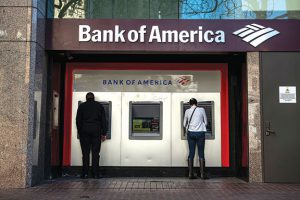Bloomberg
Bank of America Corp (BofA) said it will eliminate charges for non-sufficient funds in its customers’ accounts and reduce overdraft fees, joining a growing number of US lenders scaling back the costs.
The non-sufficient funds fees will be eliminated starting next month, and overdraft fees will be reduced to $10 from $35 beginning in May, the Charlotte, North Carolina-based bank said in a statement. The company will also eliminate the transfer fee associated with its Balance Connect for the overdraft
protection service in May.
Overdraft fees have come under fire from regulators and lawmakers, with Democratic Senator Elizabeth Warren saying late last year that such charges “snatch billions from struggling families†and that “big banks raked in billions from this abusive practice†during the Covid-19 pandemic. Companies including Capital One Financial Corp. and Ally Financial Inc. have cut overdraft fees in recent months.
“These latest steps will further support our clients and empower them to create long-term financial wellness,†Holly O’Neill, president of retail banking at Bank of America, said in the statement. “We remain committed to taking actions that will further bring down overdraft fees in the future.â€
The lender didn’t go so far as to eliminate overdraft fees entirely, as some competitors, such as McLean, Virginia-based Capital One, have.
A typical overdraft fee is around $35 across banks. The charges, which generated roughly $15 billion a year for US banks before the pandemic, are levied when customers spend more than they have in their checking accounts and the bank temporarily covers the difference.
Across the banking industry, revenue from overdraft fees has fallen after a period of steady growth before the pandemic. In 2020, the amount plummeted as consumers cut back on spending while stuck at home because of Covid-19 and banks offered waivers on the fees
for customers hurt by the
coronavirus pandemic.
 The Gulf Time Newspaper One of the finest business newspapers in the UAE brought to you by our professional writers and editors.
The Gulf Time Newspaper One of the finest business newspapers in the UAE brought to you by our professional writers and editors.
